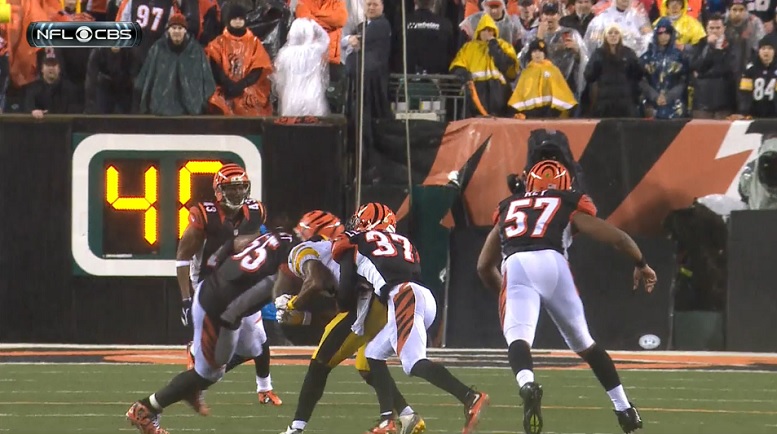If you are conscious of the history of concussions and concussion research in professional sports, then the name of Dr. Bennet Omalu will probably sound familiar to you. It should if you are a fan of the Pittsburgh Steelers. He is the one who discovered chronic traumatic encephalopathy in the brain of former Steelers center Mike Webster in 2002.
Over the course of the past 15 years since that discovery, the NFL has been under fire about what it knew and when it knew it about the links between football and concussions and its links to CTE. But for Omalu, the obsession specifically over CTE is missing the mark.
While he is admittedly on the interview cycle for the purpose of promoting a new book titled Truth Doesn’t Have a Side, he did recently speak to Kevin Seifert of ESPN about the topic, and I think that he had some interesting things to say, especially in light of a recent study that found CTE in the brains of 110 of 111 former NFL players studied.
“There has been so much fascination with CTE that we are going the wrong way”, he told Seifert. “CTE is just one disease in a spectrum of many diseases caused by brain trauma. If he doesn’t have CTE, that doesn’t mean he doesn’t have brain damage”.
More startlingly, Omalu maintains the belief that “every child who plays football has a 100 percent risk of exposure to brain damage. And I’ve always said that at a professional level, 100 percent would have brain damage of some kind to some degree”.
In other words, it doesn’t particularly matter whether or not CTE specifically is found in the postmortem of a former player, because it does not imply that he did not suffer the effects of other ailments. “There is no such thing as a safe blow to the head”, he said.
While he holds this position, he also added that he is not specifically attacking the National Football League. “I shouldn’t”, he said. “The NFL is a corporation. This is a free market. What do corporations do? They try to make money by selling a product or service”.
He said instead that “the issue is parents”, though I do think that it somewhat misses the mark. It’s impossible for all parents to bar their children from playing sports. Even if that is Omalu’s advice.
“I wouldn’t let my children engage in an activity that has a very strong probability of undermining their intellectual development”, he said. “Why would I do that to my child?”.
It may be slow-developing, but it seems that we will someday reach a crossroads about the future of the sport. At some point, the research is going to be embraced, and as a society we will have to decide whether or not to accept the barbarism of the sport as long as willing participants remain.


